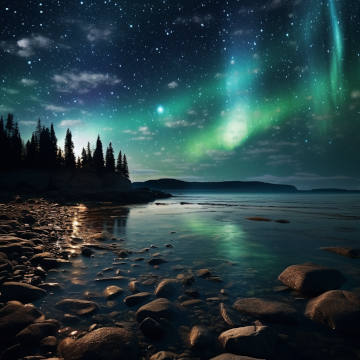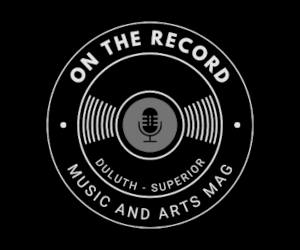The Mamas & The Papas

The Mamas & the Papas (credited as The Mama's and the Papa's on the debut album cover) were a leading vocal group of the 60s from New York. The group recorded and performed from 1965 to 1968, releasing five albums and charting ten hit singles that hold up as well today as they did back in the sunshine era. While spending relatively a short time in the realm of popular music, some group members have pointed to their short time in the spotlight as a reason why they still have loyal fans today.
Denny Doherty, Cass Elliot, John Phillips, and Michelle Phillips formed the group in New York after previous folk groups (The Mugwumps, The New Journeymen) failed. The foursome hit it big immediately after forming The Mamas & the Papas with "California Dreamin'", still their most recognizable and enduring song (The group's early history is amusingly chronicled in the song "Creeque Alley").
The name of the band was inspired by a daytime television talk show. Before the group recorded their debut album If You Can Believe Your Eyes and Ears, the band was known for a short time as The Magic Circle. Wanting an easier name to remember, they were sitting around their house (which all four band members initially shared) brainstorming on a new name. Someone switched on the TV and a talk show was on with a Hells Angel. The first thing they heard was: "Now hold on there, Hoss. Some people call our women cheap, but we just call them our Mamas." Cass jumped up and exclaimed, "Yeah! I want to be a Mama!" Michelle chimed in that she wanted to be a "Mama" too. John and Denny looked at each other and John said, "Papas? Okay, problem solved." And the band had a new name.
In interviews, former band members confide that their recording sessions (and lifestyles) were usually heavily drug-laden, with large reserves of marijuana and other popular 1960s drugs on hand. They even admit that their young children, also usually present at recording sessions, openly witnessed their drug activities. Said drug usage clearly contributed to inter-group tensions.
John Phillips had married Michelle Gilliam back on December 31, 1962, long before the formation of the band. Early on in the band's history, when they were still "The Magic Circle", Michelle and Doherty began an affair in 1965. They were able to keep it secret from the other two band members for quite some time. During a trip to Mexico, Doherty revealed his affair to Elliot, who was furious (since she was secretly in love with Doherty). Soon afterwards, John Phillips caught Michelle and Doherty in the act and moved out of the house.
John could not stand to live with Michelle afterwards and so moved back in with Doherty. At this point Michelle fled into the arms of Gene Clark of The Byrds (friends and rivals of The Mamas & the Papas). After one concert where Michelle blew kisses to front-row-seated Clark, John said he could not stand to perform with Michelle any longer. Consulting both their attorney Abe Somer as well as their label Dunhill Records, the band then drafted a formal statement kicking Michelle out of the group in June 1966.
At this point they hired a new band member to replace Michelle, Jill Gibson, girlfriend of their producer Lou Adler. Gibson was already a singer/songwriter who had performed on several Jan and Dean albums. In fact, she had once been involved with Jan Berry for seven years before becoming romantically linked to Adler. Gibson was however not known as a strong singer, but learned to sing Michelle's parts within three weeks while the band was in London, England. Jill Gibson's vocals are featured on the band's second album The Mamas & the Papas, except for two tracks that include Michelle. Gibson's most important asset, however, was that she was a good replacement for Michelle: long blond hair, slim figure, pretty face, good voice, etc. Shortly after recording and touring with Gibson, it became apparent that some fans were not happy with the substitution while others did not mind. Afterwards, largely due to John, the band reintroduced Michelle to the lineup in late August 1966. Gibson received an undisclosed lump sum for her part and later would admit to feeling betrayed by John Phillips.
Michelle and John reconciled and bought a home together in Bel Air, while the band tried to forge ahead. Things seemed fine for a while (at least they pretended they were). The group recorded their third album Deliver, which became a huge hit, and during this same time Denny was drinking heavily trying to forget Michelle. He still had a hard time seeing her back with John. Eventually the band closed the first ever Monterey International Pop Festival in June 1967, but performed dismally. John Phillips, Michelle Phillips and Lou Adler organized the festival, and according to interviews with the members of the group, they were all so caught up in the festival they never got around to rehearsing. That, combined with Denny Doherty's last minute arrival from Canada, created an unmemorable performance.
The band tried to work on another album (to which they were contractually bound). After making no progress, they decided to take a trip in October of 1967, to Europe to spark their creativity. While in England at a party thrown by Dunhill Records, their record label, Elliot was talking to Mick Jagger. John approached them and made an insulting remark about her in front of the guests. Disgusted and humiliated, she stormed out of the party and quit the band. Their record company released a Greatest Hits compilation as a stopgap measure. Cass was contractually bound for the band's next LP, and therefore appeared on The Papas & the Mamas, the group's fourth album.
The band broke up in July 1968. In a rare interview, after the group's break up, with Rolling Stone magazine, Cass admitted she wanted to go solo and that this is what had caused the official break up of the band.
Cass Elliot started a very successful solo career and toured the U.S. and Europe, becoming popular with hits such as "Make Your Own Kind of Music." In reviewing their contracts, the record company decided the band owed them one more album. After about a year apart, the band regrouped and released their final album People Like Us in 1971. They disbanded in 1972.
While on tour, Elliot died of a heart attack on July 29, 1974 (not from choking on a ham sandwich, as is sometimes reported). John Phillips died of heart failure on March 18, 2001. Michelle Phillips went on to a successful acting career, appearing in the 1973 movie Dillinger as well in the television drama Knots Landing, among others. Denny Doherty went on to host a popular variety show in Canada. Denny Doherty died on January 19, 2007. His sister Frances Arnold said the singer-songwriter died at his home in Mississauga, a city just west of Toronto, after a short illness. Michelle Phillips is now the only surviving member of the band.
John's eldest daughter from his first marriage, Mackenzie Phillips, had a moderately successful career as an actress in the mid-70s, having first appeared in George Lucas's hit film American Graffiti (1973) and then in the successful TV series One Day at a Time, but found her success so overshadowed by her problems with drug addiction—habits that she had shared personally with her father—that by 1979 her career had effectively ended due to her inability to work. She had been in the spotlight in recent days for her tell-all book in which she reveals that she has consensual sex with her father, John Phillips, for a period of over ten years, ending when she was around eighteen. John and Michelle's daughter, Chynna, would go on to form the band Wilson Phillips along with Carnie Wilson and Wendy Wilson (the daughters of Beach Boys' Brian Wilson), with whom she's been friends since infancy. John's youngest daughter, Bijou Phillips, is a successful actress and model.
The Mamas & the Papas were inducted to the Rock & Roll Hall of Fame in 1998 and into the Vocal Group Hall of Fame in 2000.
In recent years, entirely new, succeeding incarnations of The Mamas & the Papas have toured small cities nationwide—most notably featuring Spanky McFarlane and Scott McKenzie as part of the lineup—but none of them have the spirit and impact of the original group that John Phillips helped to build. User-contributed text is available under the Creative Commons By-SA License; additional terms may apply.



















